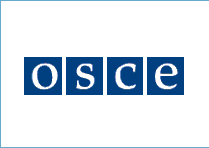
OSCE-RUSSIA MILITARY PLAN FOR MOLDOVA CRITICIZED IN VIENNA
Publication: Eurasia Daily Monitor Volume: 2 Issue: 232
By:

Moldova remains at the top of the European security agenda in the aftermath of the OSCE’s year-end ministerial conference. On December 8 at OSCE headquarters in Vienna, Russian special envoy Valery Nesterushkin, the OSCE Moldova Mission’s American chief William Hill, and that Mission’s Military Consultant, French General Bernard Aussedat, jointly presented the package of confidence- and security-building measures (CSBMs) for Moldova to an audience of diplomats and military attaches from some 30 countries. The package had been kept secret from the Moldovan public and the expert community; but its contents leaked, forcing Hill and Aussedat to defend it publicly at a November 29 briefing in Chisinau and triggering strong objections from Moldovan experts in and out of government. The plan would legitimize Transnistria’s forces on an equal footing with Moldova’s, accepting indefinitely the existence of two armies in Moldova and empowering the Russian military (along with the OSCE and Ukraine as figureheads) as “guarantors” of this arrangement (see EDM, September 15, December 6).
At the Vienna briefing, Nesterushkin and Aussedat took the lead in defending the package, with Hill in a supporting role this time. In the ensuing discussion period, no one spoke in favor of the project. All three speakers from the floor — military attaches from three West European countries — raised serious questions and reservations. These focused on the following points: a) The military plan is being proposed separately from the political process of negotiations toward a political settlement, instead of being correlated with the political process; b) Inasmuch as Russia’s forces are supposed to withdraw from Moldova, it hardly makes sense to authorize the Russian military to guarantee the CSBMs’ implementation; c) The plan presumes that the balance between Moldovan and Transnistrian forces is roughly equal, but it does not factor the Russian Federation’s forces in Moldova into this balance; d) The drafting and tabling of the plan was non-transparent and insufficiently coordinated with other parties.
For its part, the Moldovan delegation raised the following objections: a) The plan ignores Russia’s international obligations to withdraw its troops from Moldova; it equally ignores Moldova’s calls (which are finding international resonance) for transforming Russia’s “peacekeeping” operation into an international mission of military and civilian observers; b) Russia’s de facto military presence in Moldova violates the country’s Constitution; empowering Russia to oversee the CSBMs’ implementation would compound that violation or require Moldova to change its Constitution; Moldova would never go down this road; c) Moldova has unilaterally made deep cuts in its army, and fully meets its international obligations on military transparency through the existing international agreements and mechanisms; Moldova’s military reform proceeds in cooperation with the country’s Western partners, soon under the NATO-Moldova Individual Partnership Action Plan; d) The package misstates the real issue: instead of proposing to demilitarize Transnistria, it proposes to demilitarize Moldova. A valid plan should propose demilitarization of Transnistria through withdrawal of Russian forces, demobilization of Transnistria’s forces, and internationalization of “peacekeeping”; e) the package fails altogether to envisage an integrated national army, once a political settlement leads to reunification of the state; f) the Dayton model for Bosnia (invoked as a basis for this CSBM package) is irrelevant to Moldova because Dayton’s military aspects were part of a political arrangement for Bosnia, whereas the plan for Moldova is separate from the political process; moreover, Western forces were and are present in Bosnia, along with Western institutions to arbitrate and oversee the CSBMs and political processes, which is not the case in Moldova as yet.
This Russia-OSCE initiative typifies in some ways the modus operandi at the OSCE generally and at the organization’s Moldova Mission in particular. The actual authorship of this package was never disclosed, despite repeated queries to the OSCE. The original documents are in Russian, the English-language version labeled a translation from Russian. The retired General Aussedat is generally believed to be one of the co-authors – whether on his own initiative or on instructions from Paris no one seems to know. The OSCE’s Conflict-Prevention Center put its imprint on the package. U.S. diplomat Hill is the plan’s main promoter at the political level in Moldova. The plan’s content, clearly to Russia’s strategic advantage, points to a Russian main authorship as does the original language. The OSCE’s system of little transparency and, consequently, little political accountability, has in recent years repeatedly facilitated such Russian initiatives at Moldova’s expense under a “multilateralist” fig leaf.
(OSCE, “Confidence and Security Building Measures in Moldova” [120 pp. package]; December 8 briefing documents, SEC.FR/537/05, SEC.FR/538/05; see EDM, September 15, December 6)




